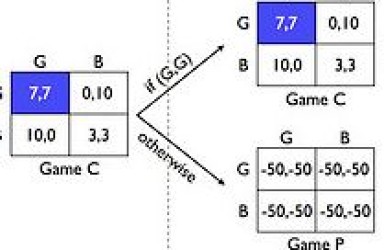Amorality and Justice in Machiavelli’s Political Thought
Machiavelli’s political thought, transcends the levels of good and evil, and yet also embraces the notion of just political rule. In that sense, Machiavelli is indeed an amoral political thinker, though not on the basis of his expounding evil, but of his conception of the proper relationship between virtù, fortuna, and political statecraft.
Hobbes’ Leviathan: Innovation or continuation?
Hobbes’ views drifted away from the medieval natural law tradition, which dictates that natural law is provided by God and is a universally binding, authoritative and knowable good. Hobbes was aware of the fact that by excluding theism and universality his readers might condemn and ignore him as a radical, which as we know, proved to be the case.
Yin or Yang? China and the Muslim world
In its autonomous region of Xinjiang China will decide upon its lasting and largely irreversible geopolitical trademark in entering the Global Balkans. Though it is narrow, the window of opportunity exists for China to take a credible leadership for regional peace and secure stable confidence.
Absolute and Relative Gains in the Real World
The real world is too complicated to be explained by absolute or relative gains alone. Both theories treat states as rational and unitary actors. Due to the diversity of interests, it is not easy to define a unitary national interest in some issues. Consequently, gains per se sometimes cannot be clearly stated.
Nuclear Strategy and Deterrence: An Attempt to Rationalise the Irrational?
Nuclear strategy developed as a means to create a rational framework of deterrence for the seemingly irrational nature of nuclear war. Rational individuals may only be so when they exist in a rational context. Once placed in an irrational situation, it is questionable as to whether a person, or on organisation could continue to act in a rational manner.
Issues in the association of women with peace activism
Women’s roles in working towards peace have become increasingly celebrated. The core issue with the association of women with peace activism is that it raises, and reinforces, gendered norms, through the assumptions of what it means to be a woman. In academic literature, these assumptions of Maternalism and Essentialism deny women agency.
Can Realism be a Critical Theory?
The adjectives ‘critical’ and ‘realist’ are habitually presented, in the field of International Relations Theory, as antithetical. But might there have been a misunderstanding among critical theorists with regard to their definition of realism?
Why ‘Two Supremacies’ Rhymes with ‘Stability’
Although the race for nuclear weapons created a very tense atmosphere during the Cold War, it was also an effective means to maintain stability because both superpowers had the incentive to avoid using their weapons knowing it would lead to their mutual destruction. Such conditions and incentives do not exist in either unipolar or multipolar systems. Bipolarity is therefore stable thanks to the balance of military power that exists between two superpowers.
Brzezinski on a U.S. Berezina: anticipating a new, New World Order
In four books from 1997 to 2008 Zbigniew Brzezinski outlined a comprehensive American foreign posture around the geopolitical grail of Central Asia. Since 1945 the United States has been largely defined as the first non-Eurasian thalassocracy to prevail in the Great Game, yet for how long?
Is Clausewitz or Sun Tzu more relevant to understanding contemporary war?
There is no strategic theory that can, yet, fully replace the classical strategists Sun Tzu and Clausewitz. The information age and modern technology have not altered the fundamental nature of war. As long as the nature of war remains unchanged, it is the same phenomenon that Sun Tzu contemplated millennia ago and that Clausewitz studied in the nineteenth century.




